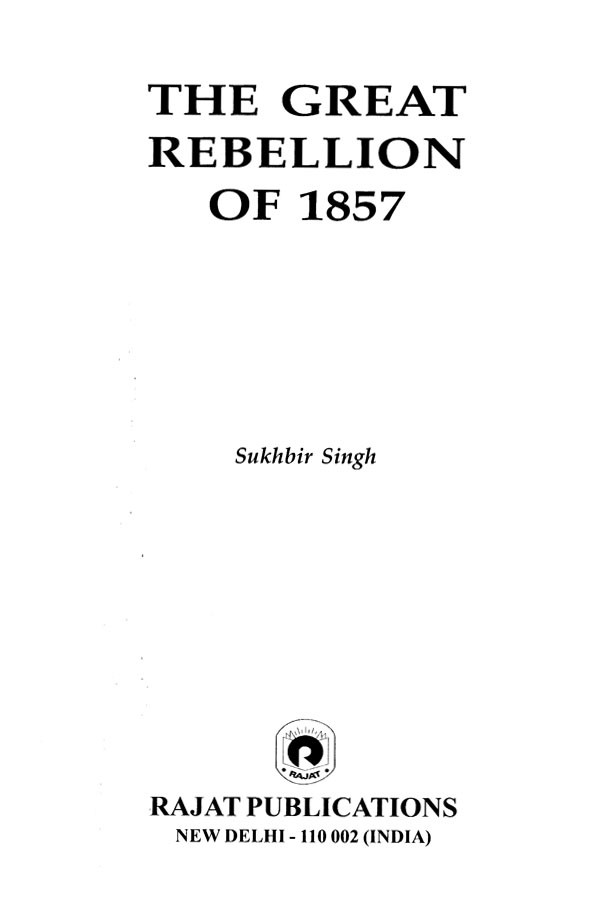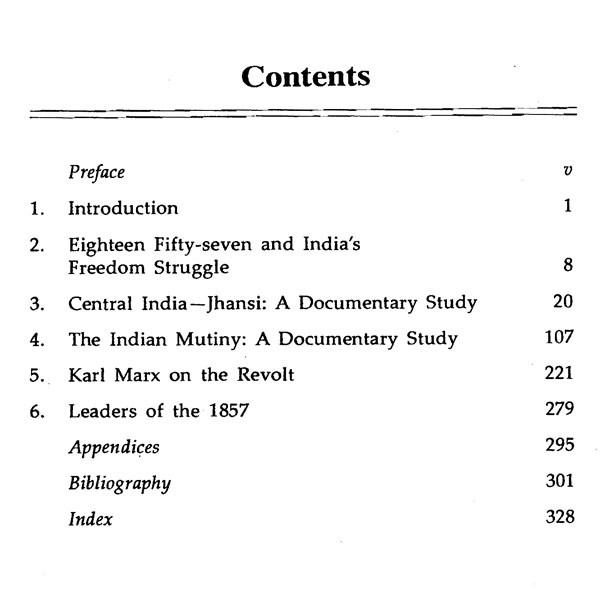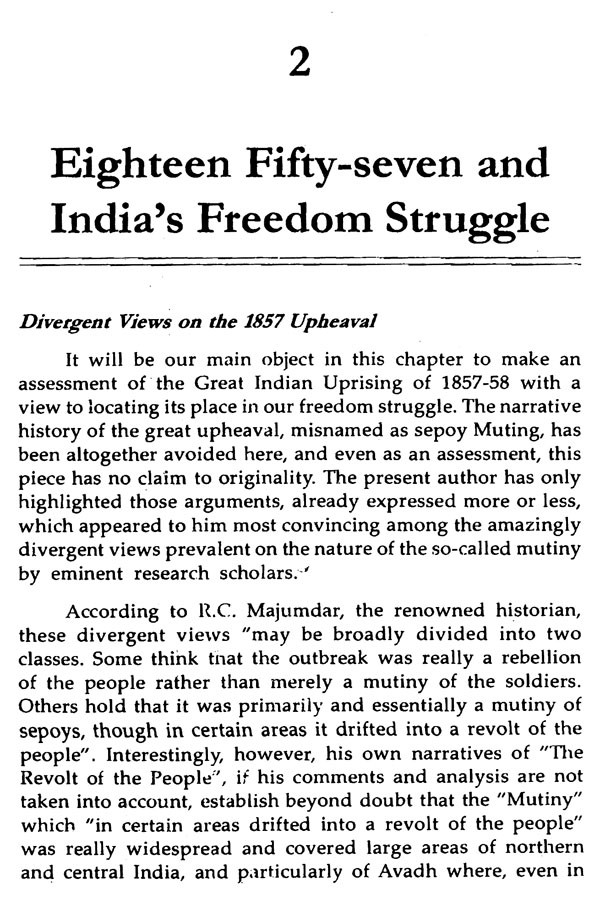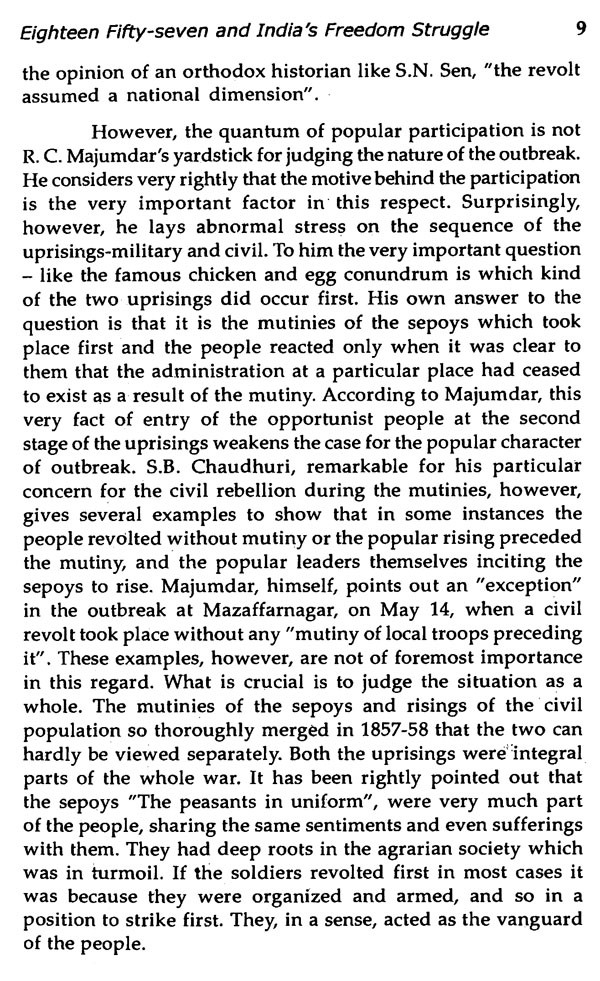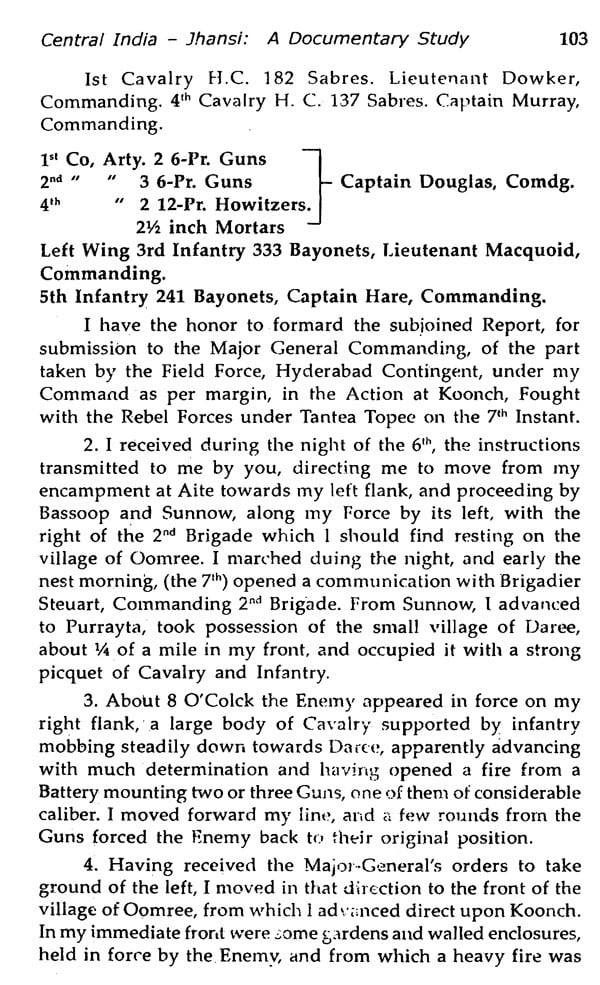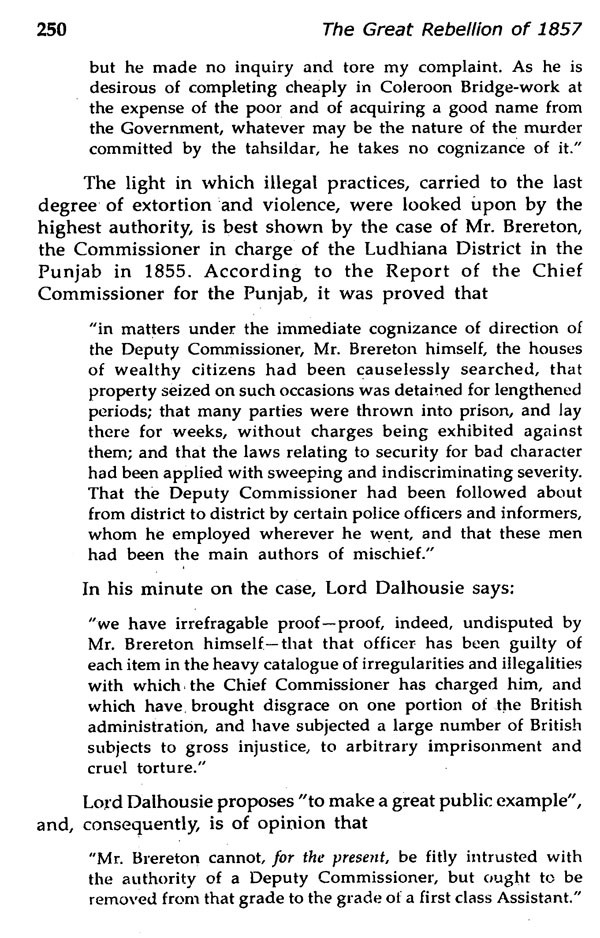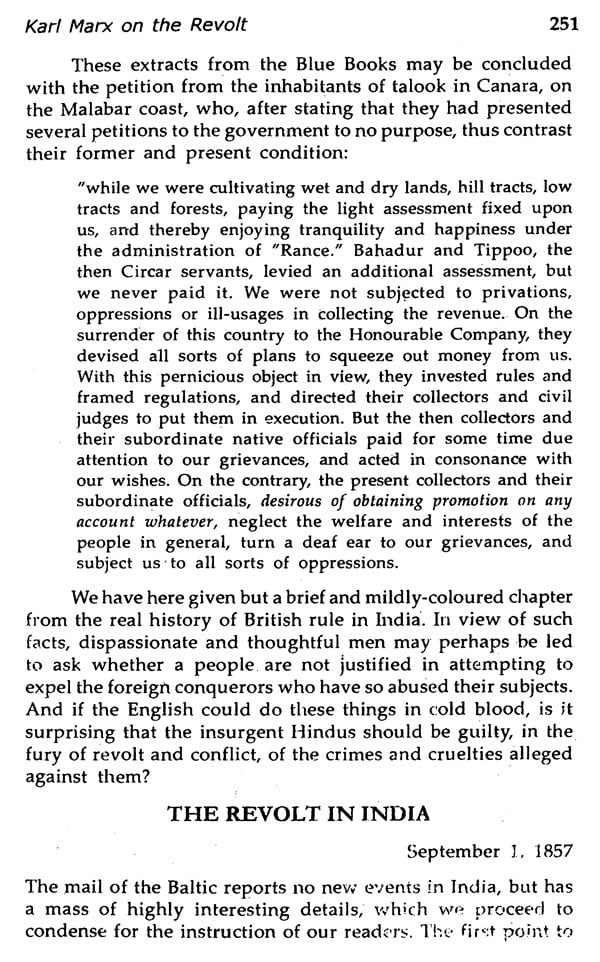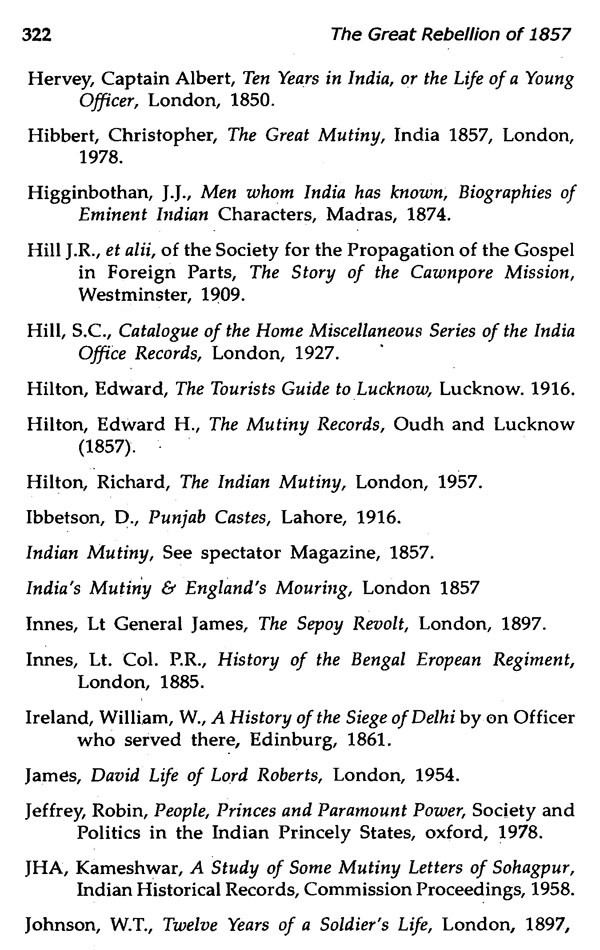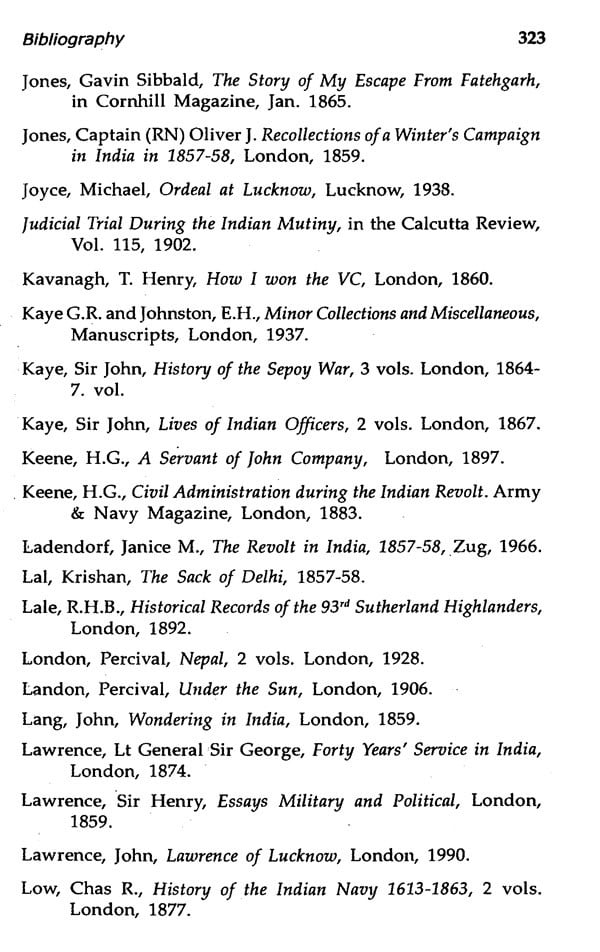About the Book 1857 is being celebrated as a national event in 2007. The scholars continue to argue about its secular character. It has still not been resolved whether it was a sepoy mutiny or the first war of independence. There is no dirst of contemporary writings and other achieves sources on the subject. Modern Indian scholar and the foreign historians have written extensively on the subject.
This book aims at providing to our readers a cross section of writings and sources, placed in proper historical perspectives. This should enable our reader to form their own opinion on the subject. Effort has also been made to confirm to the course content of universities as well.
About the Author Dr. Sukhbir Singh (b.1950) earned his M.A. (History) and Ph.D. (History) from Meerut University in 1972 and 1992 respectively. Currently, he is engaged with his D.Lit. research. A seasoned teacher having over three decades professional standing. currently Dr. Singh is Principal, S.D.P.G. College, Ghaziabad. A widely travelled person, Dr. Singh has guided over 35 doctoral researches. His book, India's Foreign Policy. Origin and Development (1999) was widely acclaimed. A wide spectrum person, he has been engaged with varied co-curricular activities.
Preface 1857 is being celebrated as a national event in 2007. The scholars continue to argue about its secular character. It has still not been resolved whether it was a sepoy mutiny or the first war of independence. There is no dirst of contemporary writings and other achieves sources on the subject. Modern Indian scholar and the foreign historians have written extensively on the subject.
This book aims at providing to our readers a cross section of writings and sources, placed in proper historical perspectives. This should enable our reader to form their own opinion on the subject. Effort has also been made to confirm to the course content of universities as well. We record our acknowledgements to the authorities on the subject without whose valuable contributions this work was not possible. Librarians and their staff members were kind and helpful. We thank them.
My Publisher deserves patronage of my readers for timely and wider intellectual circulation of this work of great importance in its present form.
Introduction It would be historically inaccurate, to dismiss the Mutiny in 1857 of the Bengal Army of the East India Company as an isolated phenomenon. To regard the outbreak of 1857 as a mutiny of spays is as great an error as to look upon it as a national war of independence, It is, a fact that the troops of the Company in the eighteenth and nineteenth centuries constituted a mercenary army, and however noble-minded and honourable their desire to see manly service, their primary motivation in enlisting and fighting for British masters was for the regular and not ungenerous pay they would receive. Men who fight for money, as a living, are not necessarily emotionally linked with the politics of their masters. The sepoy of the Bengal army in 1857 was a mercenary soldier, and he come to realize in the course of the Mutiny, that he was also, first and foremost, an Indian.
The Company's army had conquered India, but for whom? For the firenghi, the Kafir, the stern master who kept the profit of that conquest for himself, and increasingly displayed contempt for age-old custom and established religion? Indeed the political component of the great revolt seems almost to have been an afterthought for many of its participants; for some this was of no concern, for others it provided excuse or justification.
**Contents and Sample Pages**
